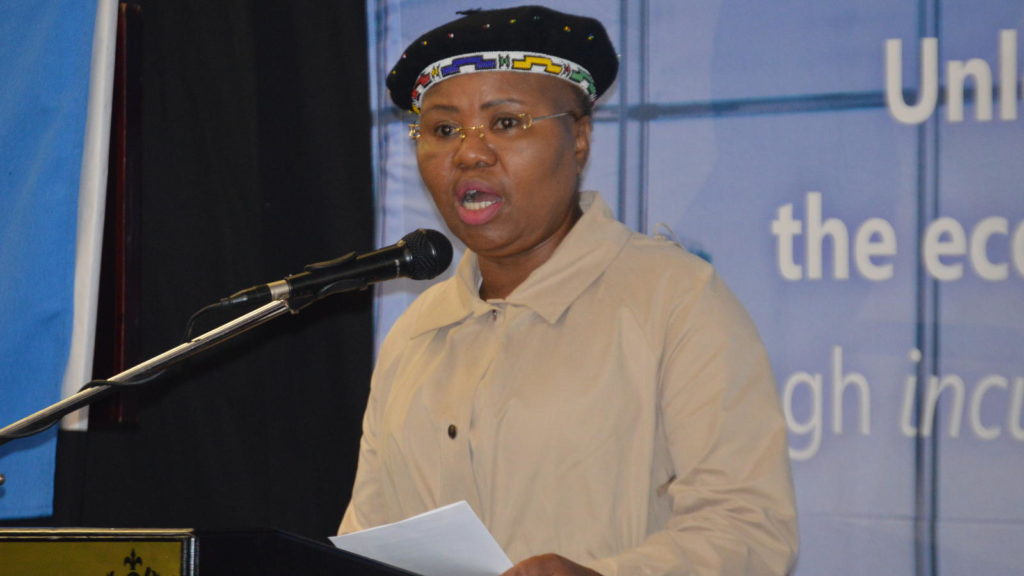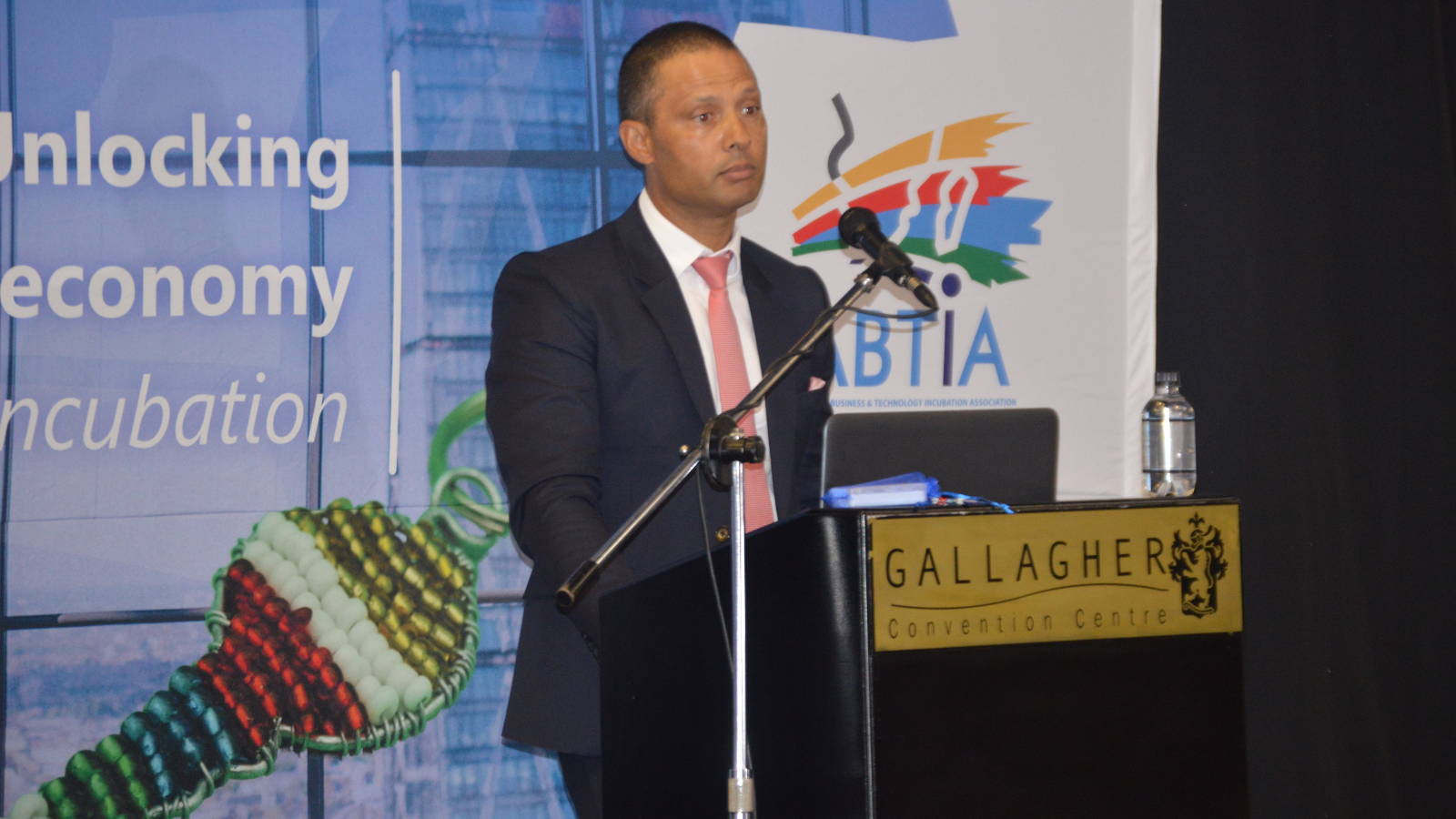We all have them. Those apps we open without thinking. Not because we need anything in particular, but because they feel… safe, in some…
Seda relaunches, mandates Sabtia to build more inclusive incubation system

Small Enterprise Development Agency (Seda) has relaunched the Southern African Business and Technology Incubation Association (Sabtia) and mandated the non-profit organisation to address challenges in the local business incubation and acceleration community.
The relaunch — which was hosted by Seda, the Small Enterprise Finance Agency (Sefa) and the Department of Small Business Development — was held yesterday (19 April) at the Gallagher Convention Centre in Midrand, Johannesburg.
Addressing the event, Minister of Small Business Development Lindiwe Zulu (pictured above) said incubation and acceleration programmes are crucial to accelerating economic growth and transformation in developing nations.
Sabtia will serve as an entry point for international incubators
Zulu said her department is aware of the need to develop a new policy framework for “re-energising and re-positioning” business incubators and accelerators to meet the challenges of national development.
Sabtia was was set up in 2007 to promote and coordinate business incubation in Southern Africa, but had ceased to function.
Speaking in a phone call with Ventureburn today (20 April), Sabtia chairman Zaid Mohidin said the initial iteration of the association had “fallen apart” because the policy and the environment then was not conducive to working together with the government and effect the association’s strategic intent.
He said a lot has changed since then, from an increase in small businesses to increased international funding of startups in the country.
“We’ve seen an understanding from the government that they cannot do it on their own — so the boundaries have been set,” Mohidin (pictured below) said.
“So clearly mapping that out with the government and understanding how we can support each other has led to the re-launch of Sabtia,” he added, noting that a new board had been formed with clearly defined goals on what needs to be achieved.
Despite government’s involvement in the initiative, Mohidin did not want to disclose how much funding the state had allocated to the association.
 SABTIA chairman Zaid Mohidin (Supplied)
SABTIA chairman Zaid Mohidin (Supplied)
Ventureburn contacted the department to ask how much funding had been committed to the association, but had not yet received a response at the time of writing.
Seda Technology Programme executive manager Nosipho Khonkwane said government’s funding through Seda is “specific to the establishment of strong secretariat for Sabtia as one of the gaps identified hampering Sabtia’s growth”.
“Government has committed to fund Sabtia over the next three years through a structured MOU with key deliverables to establish a strong secretariat and to manage an independent professional body,” Khonkwane added.
An earlier statement sent to Ventureburn states that as part of the government’s mandate, the Sabtia will:
- Enable supportive activities for incubators.
- Improve capacity and the capabilities of incubators.
- Create a platform for collaboration between private and public stakeholders across the region to address key incubation challenges.
- Form strategic and focused partnerships — with organisations like US-based International Business Innovation Association (InBIA), and European EBN Innovation Network — to localise global content and best practice.
- Build a more inclusive incubation and acceleration ecosystem in order to better serve small businesses.
Current incubation models exclusive, lacking impact
The association now aims to build a more inclusive incubation and acceleration system which will better serve small businesses and startups, including those in the informal sector.
In addition, Sabtia will also develop an accredited network of incubators, define professional conduct, and develop good practice standards. Moreover, the organisation wants to serve as an entry point for international incubators in South Africa.
He explained that although international incubators will not necessarily have to register with the association, they will have to do so to benefit from incentives the government has put together and to better understand areas they can best serve.
“What we do see is loads of international incubators coming into South Africa not really achieving or having limited effect on our black entrepreneurs which we are supposed to serve,” he said.
Without disclosing names, he said some private sector incubators are getting enterprise development money from JSE-listed entities and training black companies without any real impact.
“This is wrong. We need to fix that, we need to get accreditation right,” he said.
“When you take people into incubation we must make sure that they come out as better entrepreneurs. We must make sure that they can actually participate in the economy, instead of just dumping money on some black entrepreneurs, and having them go through some training and provide them with free space,” he added.
He believes most current incubation models are highly exclusive and do not cater for under-educated and uneducated entrepreneurs — with most focusing on high-growth companies over those for example in rural areas or townships.
Hitting the ground running
Mohidin also said the challenges African business incubators face are a result of lack of co-ordination and failure to adapt global models to suit local conditions.
In a bid to remedy that, Sabtia will next week lead a delegation to Dallas in the US to sign a strategic partnership with InBIA, a global network of entrepreneurial ecosystem builders.
The partnership will develop innovative “co-incubation” models to address challenges associated with accessing global markets, innovation and investment into Southern Africa.
The Sabtia relaunch follows President Cyril Ramaphosa’s announcement — during his February State of the Nation Address — of the establishment of a R1-billion fund aimed at supporting township businesses.
Featured image: Minister of Small Business Development Lindiwe Zulu at the Sabtia launch in Johannesburg (Supplied)


